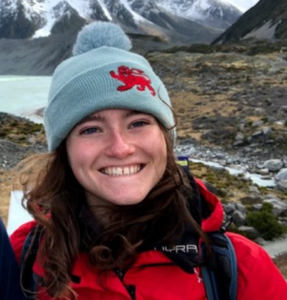 Governments need scientists, and Heather Britton is telling you what to expect if you decide to join the Civil Service Fast Stream.
Governments need scientists, and Heather Britton is telling you what to expect if you decide to join the Civil Service Fast Stream.
For the past year, I have been on the Science and Engineering Fast Stream scheme. As the graduate recruitment season is in full flow, I thought there would be an interest in describing the kinds of roles that I have been exposed to on the Science and Engineering Fast Stream, so far.
The Fast Stream exposes you to a variety of job roles and government departments. In my first placement, I was based at the Ministry for Housing Communities and Local Government (MHCLG). I was introduced to a whole world of science that I would never have chosen if I had been given the option of selecting a placement for myself.
I was involved in technical policy. Policy work involves developing appropriate responses to issues or changes in an area which the department is responsible for – for example, housing. I quickly realised that policy is an area of government that I can see myself building a career in. It involves a variety of work that is difficult to find outside of the Civil Service. I was working on the subject of energy efficiency in the building regulations, helping to cut carbon emissions from housing (currently the largest contributor to greenhouse gas emissions in this country) and work towards the government’s target to cut greenhouse gas emissions to net-zero by 2050. I felt like the work I was doing was contributing towards something important and something I really believed in, which is a very rewarding position to be in.
I firmly believe that a scientific approach is appropriate for any problem, scientific or not.
I moved on from that placement in October 2019 and now work in the Government Office for Science. I am fortunate that, being on the Science and Engineering stream, all of my roles will be in a scientific discipline, although science is found throughout the government and even placements designed for non-science specialists can be very technical in nature. I firmly believe that a scientific approach is appropriate for any problem, scientific or not. My current role is in the private office of the Government Chief Scientific Adviser and also supports the communications team. Working in a private office can be tough, but you have excellent exposure to very senior members of the government, which is invaluable.
My next placement will be a secondment outside government, which is included within the scheme so that graduates who have not had the opportunity to work outside of the Civil Service can gain experience of how other organisations work. I am hoping to get a taste of work in the charity sector, followed by a placement in the Department for the Environment, Food and Rural Affairs, as this is where I can see myself working in the longer term.
I fully recommend applying come Autumn 2020 if you want a role that allows you to use your scientific knowledge without having to spend hours in a lab and do work that has a tangible impact on the things you care about most. Whatever your passions and interests, there will be a policy area that complements those and where you really can make a difference.
You can pre-register your interest in applying to the Fast Stream now by visiting www.faststream.gov.uk
